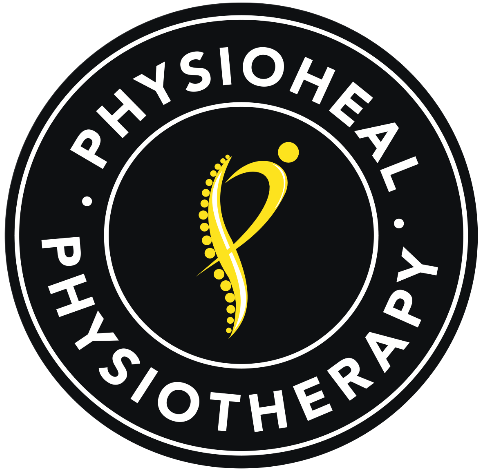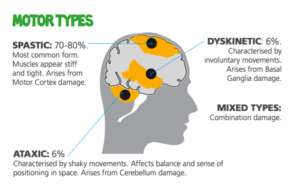We Are Open For Cerebral Palsy Treatment in Gurgaon!
Fill the form and let us call you back.
[gravityform id="3" title="false" description="false"]
Empowering Progress: Cerebral Palsy Care at Physioheal Physiotherapy
Welcome to Physioheal Physiotherapy – Your Partner in Enhancing Lives Affected by Cerebral Palsy
Elevating Lives Affected by Cerebral Palsy
Cerebral palsy is a group of disorders impacting movement and coordination in various body parts. Our dedicated team at Physioheal Physiotherapy in Gurgaon is here to provide specialized care, support, and interventions to help individuals with cerebral palsy thrive and maximize their potential.
Understanding Cerebral Palsy: Types and Origins
Cerebral palsy is characterized by impaired movement and coordination due to brain injury. “Cerebral” refers to the brain’s cerebrum, which governs motor function, while “palsy” signifies the paralysis of voluntary movement. Various types exist based on brain injury location:
Types of Cerebral Palsy:
 Ataxic: Caused by cerebellum damage, affecting motor control and movement.
Ataxic: Caused by cerebellum damage, affecting motor control and movement.- Athetoid/Dyskinetic: Arises from basal ganglia and/or cerebellum damage, leading to fluctuating muscle tone and involuntary movements.
- Hypotonic: Rare type caused by cerebellum damage, featuring floppy muscles and poor mobility.
- Spastic: Most common type due to motor cortex or pyramidal tracts damage, characterized by tight muscles and jerky movements.
- Mixed: Combination of brain damage can result in more than one type.
Discovering the Path to Progress: Early Intervention Matters
The damage leading to cerebral palsy is permanent, yet intervention during the early years can yield significant improvement. Diagnosed within the first years of life, cerebral palsy is attributed to non-progressive central nervous system injuries. Our dedicated team provides a comprehensive approach to intervention during these crucial periods:
- Prenatal: Factors like prematurity, low birth weight, maternal conditions, and infections.
- Perinatal: Complications during labor, placental insufficiency, and more.
- Postnatal: CNS infections, hypoxia, seizures, and other factors.
Unlocking Causes and Impact of Cerebral Palsy
Cerebral palsy is a result of fetal or infant brain damage, often challenging to pinpoint precisely. Several factors contribute to its development:
- Bacterial and viral infections, such as meningitis.
- Hemorrhaging in the brain.
- Birth-related head injuries.
- Oxygen deprivation (asphyxia) before, during, or after birth.
- Prenatal exposure to drugs, alcohol, or unsafe foods.
Cerebral palsy in babies can cause numerous physical and neurological symptoms that can greatly affect a child’s development. These cerebral palsy symptoms can differ for each child depending on the severity and location of the brain damage.
- Physical symptoms
- Contractures (shortening of muscles)
- Drooling
- Exaggerated or jerky reflexes
- Floppy muscle tone
- Gastrointestinal problems
- Incontinence
- Involuntary movements or tremors
- Lack of coordination and balance
- Problems swallowing or sucking
- Problems with movement on one side of the body
- Stiff muscles (spasticity)
- Neurological symptoms
- Buildup of cranial pressure due to fluid imbalance (hydrocephalus)
- Behavioral problems
- Delayed motor skill development
- Difficulty with speech and language (dysarthria)
- Sensory impairments
- Visual/hearing impairments
Cerebral palsy is usually diagnosed anywhere between 18 months and 5 years of age. Although parents and caregivers may be the first to notice signs of cerebral palsy in infants, doctors often hesitate to make an immediate diagnosis until further symptoms can be observed as the child gets older. A cerebral palsy diagnosis is made using imaging tests to look for brain damage. Imaging tests used to diagnose cerebral palsy include:
- Computed tomography (CT) scans
- Cranial ultrasounds
- Electroencephalograms (EEG)
- Magnetic resonance imaging (MRI) scans
It’s important to see a specialist if you think your child is showing developmental signs of cerebral palsy. A cerebral palsy specialist can examine your child and run tests to diagnose their condition.
Embracing Comprehensive Care: Tailored Treatment for Each Stage
Physiotherapy treatment will help babies and children with cerebral palsy from an early age to learn the correct ways to move and maximise their potential. A child with cerebral palsy should start physiotherapy at an early age, but progress may be possible at any age. At Physioheal Physiothrapy we offer an early intervention when waiting lists are long and you are looking for treatment. Our specialist neurological physiotherapists at Physioheal Physiothrapy are experienced in treating babies, children and adults with cerebral palsy.
- Physiotherapy for children with cerebral palsy: The physiotherapists at Physioheal Physiothrapy will help babies and children by promoting physical development to reach milestones as soon as possible, e.g. rolling, crawling and walking. Physiotherapy treatment is also focused around:
- Exercises based around everyday activities to increase muscle strength and control so that your child is able to shift their body weight and balance better
- Exercises to increase mobility and their success of learning to walk and standing without an aid
- Advice about supportive devices such as using a wheelchair, orthotic devices or other adaptive equipment
- Mirror imaging to increase your child’s awareness of where their limbs are in space at rest and during movement (proprioception)
- Stretching to lengthen muscles and reducing contractures
- Positioning to improve head and trunk control. For example, supporting your child in sitting to develop weight shifting, rotation, coordination and balance
- Exercises to increase quality of movement or teaching new ways of moving
- Advice regarding suitability for botulinum toxin. Tight muscle caused by increased tone may benefit from this type of treatment.
- Achieving their maximum potential
- Improving quality of life
- Promoting independence with everyday tasks
- Physiotherapy for adults with cerebral palsy: Cerebral palsy is non progressive however, over time mobility may be decreased as joints become stiff and muscle length becomes shorter. Physiotherapy treatment is therefore very important for adults with cerebral palsy. At Physioheal Physiothrapy our physiotherapists are experienced in treating adults with cerebral palsy.
- Physiotherapy treatment for adults with cerebral palsy may include:
- Exercises to increase mobility such as walking and standing without an aid
- Muscle stretching to prevent stiffness and lengthen tight muscles
- Exercise to help relax stiff muscles and joints to keep your joints flexible and help make movements smooth and efficient
- Exercise to increase stamina and reduce fatigue
- Balance training to help improve confidence and reduce the risk of falling
- Advice on positioning to help posture
- Advice about supportive devices such as using a wheelchair, orthotic devices or other adaptive equipment
- Hydrotherapy treatment
Physiotherapy treatment will help a person with cerebral palsy live the best life possible by maximising potential.
Begin your journey towards a more fulfilling life with cerebral palsy at Physioheal Physiotherapy. Led by Dr. Divya Gaur, our specialized neurological physiotherapists are committed to enhancing the quality of life for children and adults with cerebral palsy.
Take the First Step Towards Progress
If you are seeking cerebral palsy treatment in Gurgaon, consult with Dr. Divya Gaur at Physioheal Physiotherapy. Our compassionate team will provide the right resources, support, and interventions tailored to your unique needs. To book an appointment, call +91-9999259307, book online, or request a free phone consultation. Together, let’s embark on a transformative journey of progress and empowerment with Physioheal Physiotherapy.

 Ataxic: Caused by cerebellum damage, affecting motor control and movement.
Ataxic: Caused by cerebellum damage, affecting motor control and movement.